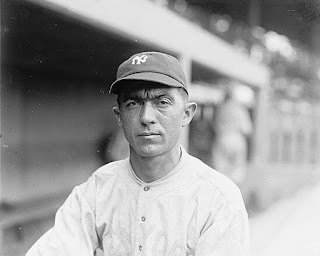Frank Baker was conceived on March 13, 1886, to Franklin Adams Baker and Mary Catherine (nee Fitzhugh) on their homestead in Trappe, Maryland. The Bakers, who were of English plummet, had been agriculturists in Trappe for six eras. His mom, of Scottish plummet, was accounted for to be a far off relative of Robert E. Lee.
Frank Baker appreciated taking a shot at his dad's ranch; however he sought turn into an expert baseball player from the age of ten. In Trappe, the vast majority of the inhabitants went to the neighborhood baseball group's amusements on Saturdays. Plain's more established sibling, Norman, was surely understood in the town for his playing capacity. Norman once went for the Philadelphia Athletics; however he didn't care for that city and quit seeking after a baseball profession.
Dough puncher pitched for the nearby secondary school baseball group and acted as an assistant at a butcher shop and market claimed by relatives. He marked with a neighborhood semi-proficient baseball group situated in Ridgely, Maryland, in 1905, at 19 years old. The group, which was overseen by Buck Herzog, paid him $5 every week ($132 in current dollar terms) and took care of his boarding expenses. Herzog found that Baker couldn't pitch well, however that he could hit. Baker was not able play the outfield well, however he could move into the infield as a third baseman for Ridgely.
In 1906, Baker played for Sparrows Point Club in Baltimore, winning $15 every week ($395 in current dollar terms). He got an offer to play for a group in the Class C Texas League in 1907, which he turned down. He rather marked with a free group situated in Cambridge, Maryland.
At the end of the 1910 season, Frank Baker had only hit six homers in 1,133 at-bats. Until then he was known more as a base stealer power hitter who, having stolen 20 or more bases each year and led the league in triples in 1909 with 19.
Baker then hit 11 homers in 1911 to lead the league the first of four consecutive years helping Connie Mack Athletics to win his second consecutive championship. In the World Series, Christy Mathewson Giants won the first game, 2-1. The game number two drew 1-1 in the sixth; Rube Marquard had retired thirteen batters consecutively; but after Eddie Collins doubled, Baker pulled a pitch over the short fence in right field at the Polo Grounds to give the Athletics a 3-1 victory. The next day, the ghost writer Mathewson, John Wheeler, advised that "A Baker have to throw out." Later that same day, in Game number three, Mathewson Baker retired with two harmless shot and high. When Baker went to bat for the fourth time with the Giants ahead 1-0 with one out in the ninth, Mathewson got two strikes, but then Baker pulled an out a pitch that landed in the right field seats; Athletics won 3-1 in the eleventh inning, and Frank Baker suddenly became "Home Run" Baker.
Baker batted fourth behind Eddie Collins, and sports reporters suggested that the antics of Collins on the basis of Baker made a great hitter. Collins laughed. "When it comes to bat," he said, "Carnegie Baker needed help as he needed money."
300 Hitter in six different seasons, the league lead my salespeople twice in RBIs and could have done even more damage if not because he was gone for two full seasons.
When the A's were swept in the Series 1914, Mack decided to punish players with severe pay cuts; Baker declined to play during the season and then was sold to the Yankees. Neither played in 1920, the year his wife died, but helped New York win Pennants in 1921 and 1922 as a player on duty.
In 1961 the sports reporter Joe Williams asked Baker how many runs do today, what Baker said, "I would say 50 anyway The year batted 12, also I gave at the gate left the park. Shibe 38 times; all that could have been home runs with the ball alive.











0 comments: